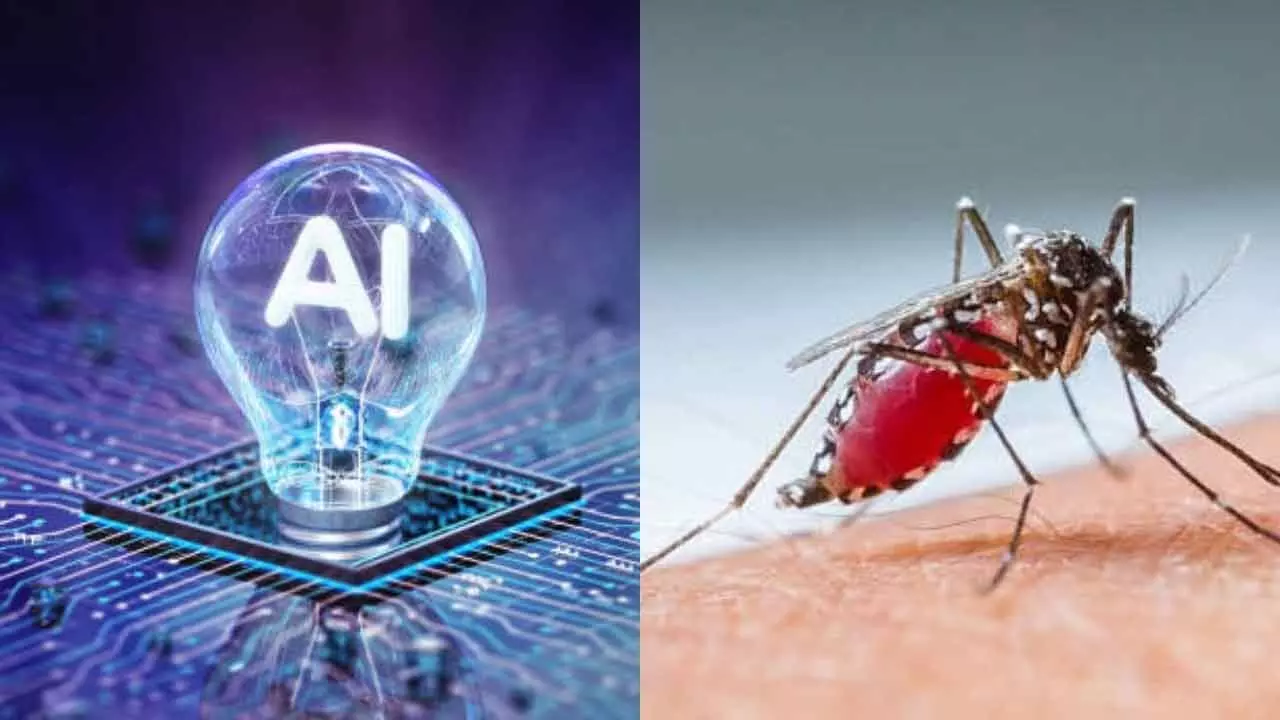Andhra Pradesh to Launch AI-Powered Mosquito Control in 66 Locations
Andhra Pradesh is set to revolutionize mosquito control with an AI-powered surveillance system (SMoSS) in 66 pilot locations across six major cities. This deep-tech initiative aims to curb vector-borne diseases, optimize operations, and ensure targeted fumigation using drones, sensors, and real-time data.
Andhra Pradesh to Launch AI-Powered Mosquito Control in 66 Locations

Andhra Pradesh is gearing up to launch a groundbreaking "smart mosquito control" program, harnessing the power of deep technology to combat vector-borne diseases. The state's municipal administration and urban development department will soon roll out the Artificial Intelligence-powered Smart Mosquito Surveillance System (SMoSS) on a pilot basis, targeting 66 high-risk locations across six major municipal corporations.
This innovative program aims to significantly enhance public health by effectively curbing the persistent mosquito menace. Beyond health benefits, SMoSS is also designed to reduce the operational burden on civic staff and lower costs for urban local bodies.
The initiative will leverage cutting-edge Internet of Things (IoT) technologies, including drones, sensors, heat maps, and intelligent traps, for precise monitoring and intervention. "We will launch the pilot project at 16 locations in Greater Visakhapatnam Municipal Corporation, four in Kakinada, five in Rajamahendravaram, 28 in Vijayawada, seven in Nellore, and six in Kurnool," stated P Sampath Kumar, Director of Municipal Administration. Principal Secretary Suresh Kumar and Sampath Kumar recently reviewed the AI-powered SMoSS, developed by a private agency, to assess its effectiveness.
How SMoSS Works:
At the heart of the system are AI-powered smart mosquito sensors that will be strategically installed in key mosquito-prone zones within the selected cities and towns. These advanced sensors are capable of:
♦ Detecting specific mosquito species.
♦ Identifying their gender.
♦ Measuring density, temperature, and humidity.
Crucially, SMoSS will automatically trigger alerts when mosquito density in any particular area crosses a predetermined threshold. The data collected by these sensors will be continuously streamed to a central server and visualized on a real-time dashboard.
"This will enable close monitoring and ensure prompt fumigation in the affected areas through a data-driven approach, replacing the current 'blind spraying' process that has limited impact," explained Sampath Kumar. "The IoT sensors will precisely monitor mosquito density and guide targeted activity."
Efficiency and Accountability:
The program will also integrate drones for spraying larvicide. This will lead to more efficient application, covering large areas with less chemical use, saving both time and cost. The emphasis is on evidence-based spraying, preventing chemical overuse, and promoting public health safety as core elements of the entire operation.
Principal Secretary Suresh Kumar noted that the operations are planned to be completely outsourced to specialized agencies, with payment structured to be result-oriented by fixing operational accountability. Citizen complaints and feedback from field-level functionaries will be diligently tracked via dedicated mobile applications, "Vector Control" and "Puramitra," ensuring transparency and responsiveness.
This forward-thinking initiative marks a significant leap in public health management for Andhra Pradesh, transforming traditional mosquito control into a precise, data-driven, and highly effective operation.

